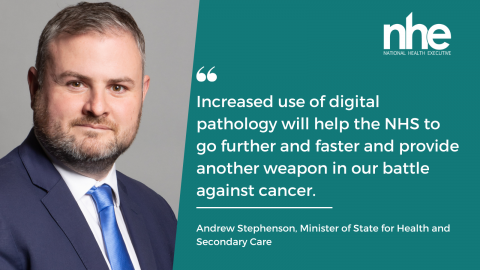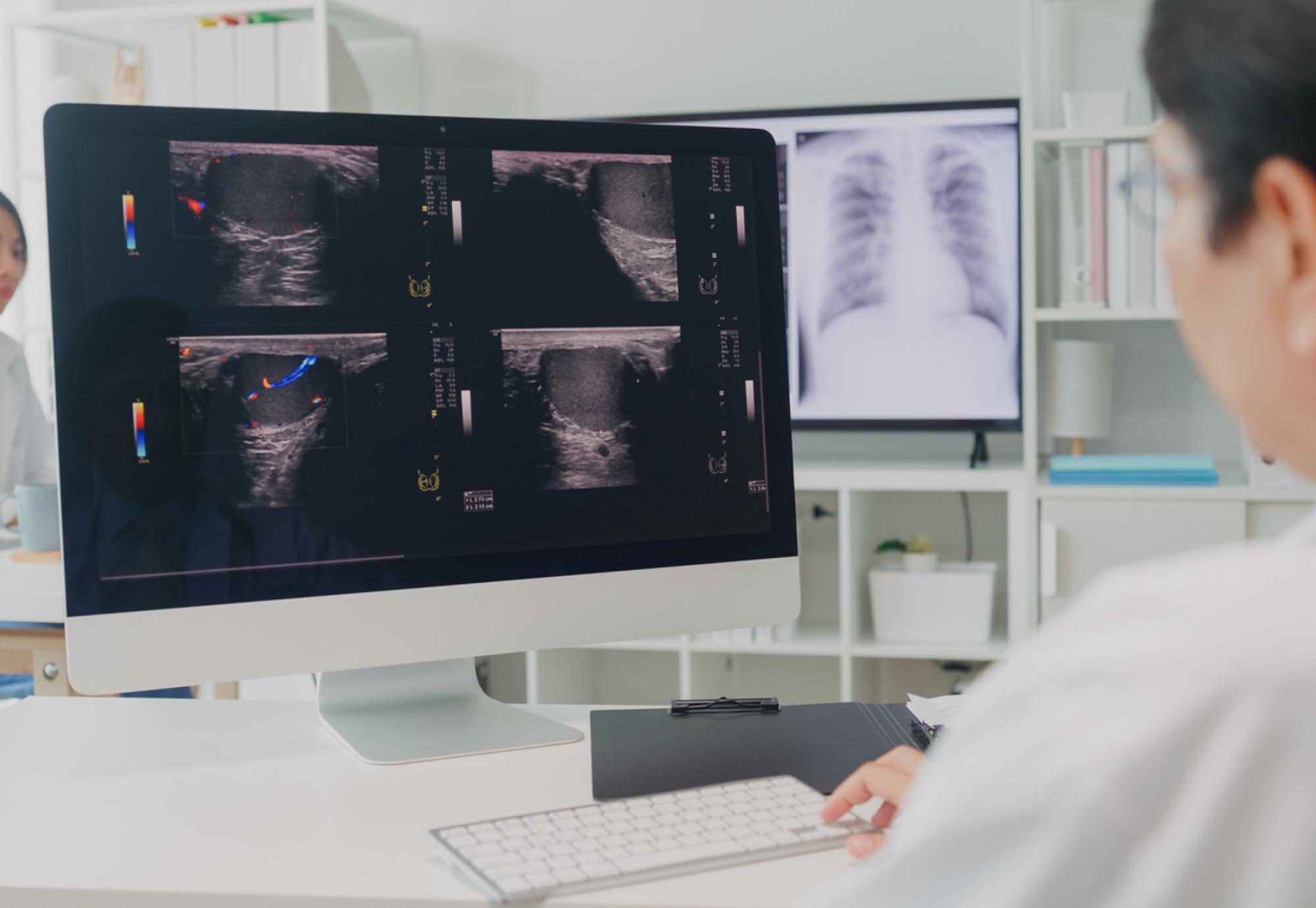Patients are set to benefit from faster diagnoses thanks to the government taking forward the use of digital images when screening for breast, bowel and cervical cancer.
Health leaders expect the expanded use of digital pathology to examine body tissue samples will make it easier to identify cancer, and help laboratories work more efficiently.
The move comes in response to a recommendation made by the UK National Screening Committee, which conducted research into a technique known as whole slide imaging.
Whole slide imaging allows clinicians to review glass slides via high resolution images on a computer, opposed to through a microscope.
After a trial concluded digital microscopy was as effective as the traditional approach, the committee decided it was a safe option to complement or replace light microscopy.

While some parts of the NHS have been trail-blazers for this technology, the Department of Health and Social Care says this will allow a wider roll-out, with NHS England expected to publish guidance so pathology teams can make the most of the technology on offer.
Chair of the UK National Screening Committee, Professor Sir Mike Richards, said he was “pleased” the recommendation had been backed by the government.
He said: “Its use will support flexibility for pathologists and make sharing samples for second opinions or quality assurance easier and more efficient.”
The announcement comes just after the health service expanded its bowel cancer screening programme, sending out at-home testing kits for hundreds of thousands of people.
Last year was a record-breaking year for cancer checks, with recently-published figures showing the 12 months up to October 2023 saw nearly three million people get checked for the disease.
The 12 months up to August 2023 also saw almost three in five (58%) cancer diagnosed at stage one or two, improving the chance of survival and increasing the amount of treatment options available.
“The NHS’s successful national screening programmes – bowel, breast and cervical – are saving thousands of lives every year by identifying people at risk and spotting cancers early.”
Steve Russell, NHS England’s national director for vaccinations and screening continued: “While we are already using some digital innovations to improve the accuracy of cancer diagnosis, we look forward to further utilising digital pathology imagery for the benefit of screening patients.”
This all comes as the NHS launches cancer awareness campaign across the country. Last year, a double-decker bus visited England’s hot spots for the disease while messaging in underwear encouraged people to see their GP if they spotted symptoms, for example.
Image credit: iStock



















